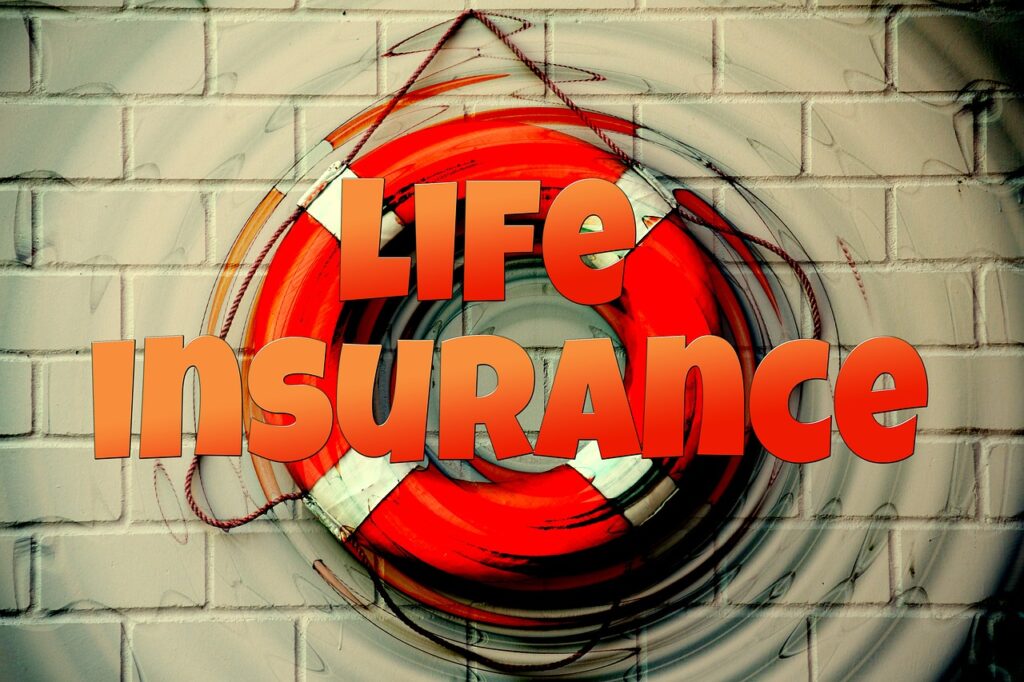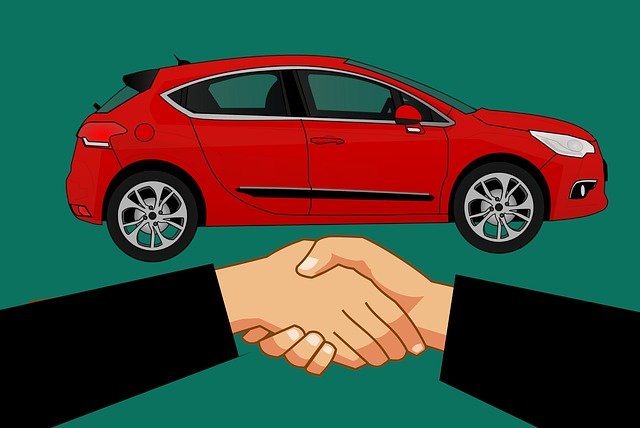Insurance
Insurance is a form of financial protection that transfers the risk of catastrophic financial loss from you to a company. Without insurance, you could find yourself in big trouble. You can’t get it after the fact, so it’s important to have it while you’re insurable. In most cases, you’ll pay a monthly premium in exchange for coverage. It’s an investment in your future. Here’s a look at how insurance works.
Insurance policy
When you purchase an insurance policy, you’re agreeing to pay premiums to an insurance company. The money is used to pay for benefits, and the premiums go toward paying for the insurance. You will be covered for certain things and may have to make a deductible before you start receiving benefits. There are different kinds of insurance, such as health insurance and property policies. Some policies are only for one person, so it’s important to know exactly what you’re getting.
Insurance companies pool the money they receive from insurance buyers and invest it in productive channels. These funds allow the company to continue to ensure new people while keeping its capital intact. These investments also help the economy. When you purchase a policy, you are essentially buying a risk transfer mechanism. You’re giving a larger entity (the Insurance Company) a risk by paying premiums to reduce your financial burden. It’s a win-win situation for both parties. And because the insurer is aware of the risk involved, they’ll use the funds in settling claims and for general business activities.
Insurance is a form of financial protection against unforeseen risks
It’s basically a massive rainy day fund. This fund is shared among many people and managed by the insurance carrier. The insurer uses the money collected from policyholders and other investments to pay for operations and make payments for claims. To be successful, an insurance company must stay financially strong and be able to handle any disaster or everyday calamity. This is why it’s so important to have insurance.
Insurance is a financial protection mechanism
It allows a person to transfer his or her risk of a catastrophic event to a larger entity (the Insurance Company). It also reduces the financial burden of an individual in the event of a catastrophe. In other words, insurance can reduce the financial burden and the risk of a disaster. The cost of insurance is a result of the risk-sharing between the insured and the insurer. This means that the insurance company must be financially stable to cover any potential catastrophe.
Insurance is a financial protection tool
It helps you cope with the unexpected. For example, if you have a car accident, your insurance company will pay for it. If you’re in a car crash, your insurer will cover the expenses for you. This is a very effective risk management strategy. It also prevents financial disasters. The Insurance Company will pay for the damages associated with the accident. If a vehicle is involved in an accident, your insurance provider will cover the costs of the damages. Also, read about insurance portal development.
12 Types Of Insurance
1. Life insurance
Life insurance is an agreement between an insured person and an insurer that promises to pay a specified beneficiary in the event of the insured’s death. It can also pay out in case of a critical illness or terminal illness. However, before you decide on a policy, it is important to understand the details of the type of coverage you’re looking for. Read on to learn about the different types of life insurance policies available. In most cases, the policyholder will be responsible for paying the premiums.

Policies
Some policies are called term or permanent and cover a specified number of years. The insured will receive a death benefit if he or she dies during the term of the policy. Other policies are known as permanent or whole life. In the case of a permanent disability, the death benefit will be paid when the insured passes away. Most policies also cover dependents, such as grandparents and stepchildren. They’re important to have a financial plan in place, so they can pay for unexpected expenses.
Death
In the event of a death, the policy will pay a death benefit to beneficiaries. The death benefit is usually a fixed amount. The death benefit is often used to cover medical expenses and funeral costs, and it can help provide financial assistance to your family in case of a long illness or accident. For younger children, the death benefit can go toward education and housing. For those in their golden years, it can be used to finalize your end-of-life wishes and ensure the financial burdens of those choices don’t wall on your loved ones. Using a site like everdays.com makes this process easy.
When it comes to life insurance, it is important to understand the types of coverage available to you. There are various types of life insurance, and you should choose one that suits your needs. It’s important to understand your needs and goals. There are several types of life insurance policies available to you. You can use the online tools provided by an insurance company to compare them. Once you know your needs, you can then choose the right plan.
Term life insurance policies are the least expensive of all types of plans
This type of plan will cover you for a specified amount of time. Some term policies are for ten or twenty years. You can choose between different terms, and some are for a lifetime. Depending on your needs, term life insurance can be an excellent option for your family. A term policy will cover you for a specified number of years. During this time, it can provide the funds your family needs to pay the mortgage, buy a house, or send your kids to college.
There are several types of life insurance policies, and each one will have different benefits. In general, a life insurance policy pays a death benefit to the named beneficiary upon the insured person’s death. It can be purchased for many different reasons, including the replacement of lost earnings, retirement plans, and other important financial goals. It can protect your children’s college education or provide funds for a business, and it can help fund your college education.
2. Car Insurance
If you have not taken out car insurance, you should. This policy covers the policyholder and anyone listed on it, including others who drive the vehicle with his or her permission. However, you must pay premiums to receive the coverage. Some companies offer lower premiums for paying in advance. You can also choose to pay monthly. Most policies require you to pay a deductible before the start of the coverage period. If you don’t want to pay a deductible, you can choose a lower premium or a longer period of time.

Amount of premium
The amount of premium you pay depends on a number of factors. One of these is your driving record. Driving safely can help reduce your premium. Other factors that influence your premium are your car’s value and its make and model. You should also consider the value of your vehicle. The lower its value, the cheaper your insurance will be. And if you’re a high-risk driver, you can choose a higher-risk vehicle.
Cost of your premium
The cost of your premium is affected by a number of factors, such as the brand reputation of the insurance company and the number of drivers on your policy. You can also choose to pay higher premiums if you plan to add more than one driver to your policy. However, you should be aware that the higher your coverage, the more risk you’re taking. If you’re a low-risk driver, the minimum coverage in your state is not enough to protect you, and your premium will increase accordingly.
Type of Insurance
The type of insurance you buy will also be affected by your driving record. If you drive safely, your premium will be lower. Other factors include the value of your car, the number of people you drive, and how much you use your car. Using your vehicle for long-distance travel increases your risk of an accident, so you might want to opt for uninsured motorist insurance. You can also opt for comprehensive coverage if you’re concerned about weather-related incidents.
Amount of Coverage
When you are insuring your car, it’s important to remember that the amount of coverage you have is determined by the location of your vehicle. If you have a child who uses the car, you might want to consider buying a policy with a lower premium. If you have two vehicles, you may not need the same kind of coverage in both states. If you’re driving in a state with higher insurance rates, you’ll have to pay more in the end.
Protection
In addition to protecting your car, auto insurance also protects other people’s property. It’s important to have insurance coverage because it’s vital for you and your family. If you are in a bad situation, you can get the compensation you need to protect yourself. Your car’s insurance will help cover the cost of any medical bills. It’s also important to make sure that you don’t get in an accident that’s not your fault.
3. Automobile Insurance
Understanding the terms of your automobile insurance policy is critical. You should not be unsure of your coverage without reading the terms and conditions. The insurance premium you pay is the amount of money that the insurance company will pay for covered damages in the event of an accident. It is important to understand the terms and conditions before making a decision. In addition, you must be aware of any deductibles you may need to pay. Having sufficient coverage is crucial to protecting yourself against unexpected expenses.

kind of coverage
Depending on the kind of coverage you need, you may choose liability coverage or comprehensive coverage. The former pays for damages to other vehicles in an accident. The latter covers any expenses that result from injuries to other drivers or passengers. In some states, you are required to have this coverage. The last option is collision coverage. This type of insurance pays for repairs to your car after an accident. The last two options provide protection for damage that occurs as a result of unforeseen events.
Amount of Coverage
The amount of coverage you choose for your car depends on a few factors. For example, you may need physical damage coverage if you hit something with your car. However, you can always opt for a higher deductible. You can also choose a commercial or gap insurance policy if you have business expenses. This is a great way to keep costs down. But remember that you should never drive without adequate coverage! If you don’t have liability coverage, you won’t have any protection in case you get involved in an accident.
It is important to have a good idea of what type of coverage you need for your car. This will help you decide on the right policy for your situation. In the event of a collision, liability insurance will pay for damages done by other drivers. The other option is collision coverage, which is designed to cover damage to your car. While collision coverage is the most common form of insurance, it is important to keep in mind that it will not cover a car that rolls or hits a pothole.
Liability coverage
While liability coverage is the most basic and essential coverage for your car, it is often not enough to protect yourself from accidents. It is also important to have collision insurance to cover damage to your car. This will cover any damages that happen to your car if you are at fault in a collision. In some cases, liability insurance is not enough, and you’ll need to add more coverage. In such a case, you will need to purchase a higher-risk policy.
Choosing an appropriate policy is a crucial part of maintaining a good driving record. You can choose to have the minimum coverage required by law in your state. If you have a clean driving record, you can choose a lower-deductible automobile insurance policy. In addition to liability, collision coverage will also cover damage to your car in the event of an accident. A high-deductible policy is the best choice for drivers who drive often.
4. Travel insurance
When traveling abroad, it is vital to have travel insurance. Even if you have a comprehensive policy, you can still face financial problems if something unexpected occurs. Whether your trip is interrupted due to illness, airline strikes, or jury duty, travel insurance can cover the expenses and inconvenience. In this article, we’ll look at what you can expect and what you should know about the type of coverage you need. Read on to find out the benefits and limitations of different types of travel insurance.

Benefits and limitations of different types of travel insurance
- It is important to remember that not all travel insurance is the same. Some policies cover prepaid expenses, while others only cover non-refundable deposits. If you’re traveling overseas, make sure you choose a policy that covers prepaid expenses. This will help you avoid paying for medical treatments that aren’t needed until you’re back home. Getting the right plan can mean the difference between financial ruin and a great vacation.
- you should look at the policy before you decide to buy it. If you already have health insurance, make sure to check with it. Many travel insurance companies are willing to bundle it into your bank account. Whatever your choice, you can be confident that you’re getting the right policy. While you can purchase travel insurance online, don’t forget to read the terms and conditions carefully. Typically, you have 14 days to cancel a policy if you don’t like it.
Depending on the type of plan you purchase, travel insurance can cover all sorts of mishaps abroad. Plans vary in cost, terms, and coverage amounts. While the basic coverage can be relatively cheap, a more comprehensive plan can cover emergency expenses, emergency evacuation, and even the replacement of lost luggage and material belongings. And don’t forget about the cost. You can get the best possible travel insurance plan for your budget. It’s worth considering your needs and budget when making a decision.
Travel insurance policy
If you are traveling abroad, you should consider purchasing a travel insurance policy. While this type of coverage can protect you financially and provide access to assistance services when needed. Purchasing a travel insurance policy can prevent you from facing costs associated with an emergency situation. Most travel insurance plans will cover medical and dental costs, while others will cover only some expenses. You should consider the cost of your coverage before purchasing travel insurance, and choose the best plan for your needs.
Travel insurance policies include less-known elements, such as medical coverage and emergency evacuation. While some policies will cover these things, others will not. So it’s essential to check out the details of your travel insurance policy before you purchase it. It’s important to read the fine print. You can consult an agent and/or company to get all the details you need. It’s important to understand your rights as a consumer. There are some policies that you shouldn’t buy.
5. Pet Insurance
Pet insurance is a great idea for any family with a beloved pet. However, there are many things you should know before getting pet insurance. It is important to make sure you know what the policy covers, as well as any limitations. The most common problems covered by pet insurance plans are accidents, illnesses, and surgeries. They may also cover emergency care and examination fees. Although some plans will cover pre-existing conditions, others will not.

Most pet insurance plans cover prescription drugs
Some of them even offer optional coverage for prescription drugs. Your pet may have pre-existing medical conditions, so it is important to find a policy that covers those medications. You can also look for preventative care like vaccinations, heartworm prevention, flea control, and annual vet checkups. Purchasing a policy that covers these services will help keep your pet healthy and happy. Once you get the best deal, you’ll be glad you have it!
If your pet has a pre-existing condition, you may want to look into pet insurance that covers that as well. Prescription drugs are costly, but they can save you a lot of money over time. Your policy should include coverage for both your pets’ prescription drugs and any other medications you may need for them. Most policies cover preventative care for your pet, including vaccinations, flea control, and annual vet checkups.
The cost of pet insurance is usually an ongoing monthly payment
The price of the plan is dependent on the coverage you purchase. Be sure to shop around for the best deal. You need to make sure you can afford it and still provide coverage for your pet’s medical needs. Remember, the cheaper the plan, the less cover it offers. The best thing to do is shop around before you purchase pet insurance. If you don’t like to pay the premium, consider another provider.
Dental care
In addition to dental care, pet insurance will cover prescription drugs and preventative care. It will also cover grooming, dental care, and training. Most policies won’t cover preventative care. But if your dog is prone to dental problems, you can opt for a plan that covers this. Then, you’ll be glad you took the time to find a policy that meets your needs. You’ll be happy you did.
Pet insurance cost
The cost of pet insurance will depend on your needs. The more you choose, the more you can save. Various plans will suit your budget. In case you are on a budget, a low premium plan might be the best option. This will cover your pet for accidents, but there are some limitations. If your pet suffers from an illness, you can also buy pet health insurance. The cost of the plan will depend on the type of illness.
6. Home insurance
The first question you might ask when you are considering buying home insurance is what does it cover? It’s important to know what your policy will cover before you commit to a policy. There are several types of policies to choose from, and the cost of each one depends on a number of factors, such as your home’s value, your deductible, and the area in which you live. There are also policies that bundle different types of coverage to make the entire process simpler.
Homeowners insurance comes in three basic forms:
HO-2 (the most basic) and HO-3 (the most comprehensive). The first type covers damages to the structure of the home, while the last one only covers losses due to accidents. Depending on your needs, you may want to choose a supplemental policy that covers additional perils, such as earthquakes. A comprehensive policy will also protect your belongings in the event of theft or vandalism.
Most policies include $100,000 of liability coverage
If you’re in an area prone to flooding, you may want to consider additional living expenses coverage. However, many policies only cover fifty to seventy percent of the value of your possessions. To get more protection, you may have to pay a higher premium, but the extra coverage will help you replace expensive items. So what is home insurance, and why do you need it? This guide will help you understand what you need to have a policy.
HO-3 form
The HO-3 form provides the most basic protection and is the most affordable. It offers all-risk coverage for the house and limited coverage for your personal belongings. This is not a comprehensive policy, however. HO-5 provides all-risk coverage for the building and contents and includes medical payments coverage for injury or illness. For the best protection, HO-5 is the right choice. Whether you live in a single-family home or a condominium, you need to determine the level of coverage that best fits your needs.
HO-2
The HO-2 is the most basic policy. The HO-3 and HO-4 policies are the most comprehensive. Moreover, you may want to purchase supplemental policies to cover additional perils, including fire, theft, and personal property. If you’re unsure of what type of coverage you need, consult with a home insurance expert. This insurance is a necessary protection for your home, your possessions, and your family.
The premium of home insurance
While the premium of home insurance is not the same for every person, it’s an important part of protecting your home. Having an insurance policy will protect your assets in the event of an unexpected disaster. It covers your personal belongings, your house’s structure, and any injuries that happen on the property. While you should take care of all the details of your home insurance policy, it is vital that you get the right one. You’ll be glad you did.
7. Health Insurance
When buying a health insurance plan, it’s important to understand the basics. This includes the deductible. The deductible is the amount that you must pay before your insurer begins to reimburse you for your covered medical expenses. For example, if your annual deductible is $7500, you’ll have to pay the entire amount before your insurer begins to pay. You may have to visit several doctors to meet this monetary goal or get several prescription refills in order to reach it. Most plans apply co-pays to your yearly horizon.

Health insurance plans
Health insurance plans are contractual agreements between an individual and an insurance provider. Depending on the type of plan, they can be monthly, yearly, or lifelong. Some are even mandatory for all citizens in national health plans. In most cases, a health insurance provider will specify the costs that are covered in a member contract, Evidence of Coverage booklet, or national policy. Regardless of whether you pay monthly premiums or annually, you should be aware of the benefits of your plan.
Health insurance is a contract between you and your health insurance provider
You pay a monthly premium, and your insurer pays part of your medical expenses. Depending on the level of coverage that you have, your insurer may not pay your full medical expenses. You should always research the cost of your health insurance before purchasing it. By doing so, you’ll be able to make an informed decision about which plan will work best for you.
What Is Health Insurance?
Health insurance is a contract between a health insurance provider and you. The contract can be renewed annually, monthly, or lifetime, and it may even be mandatory for all citizens in a national plan. It’s important to know the details of your health insurance plan because these can affect your finances. However, a health insurance policy will help you make the right choice for your healthcare. It is an important part of your financial security, and it is important that you understand your options when it comes to your health care.
Health insurance policy
A health insurance policy is a contract between you and an insurance provider that pays for your medical expenses. You pay a monthly premium and the insurer will pay a portion of the covered health care costs. The cost of a health insurance plan varies from state to state. For example, in the United States, health insurance is compulsory for all citizens, but it may not be the same for you in every state. It is necessary to understand the differences between your policies. You should compare your options before buying a health insurance plan.
Health insurance quotes
Health insurance quotes are the best way to find the most affordable health insurance policy for you. A health insurance quote is the basis of your decision to purchase a particular policy. If you are unsure about what to buy, you should consult a health insurance broker. This professional will be able to help you make the best choice for you and your family. Further, a health insurance broker is the most reliable option to choose good health insurance.
8. Mobile Insurance
There are several types of mobile insurance available. AppleCare+ is a good example of mobile insurance. It protects iPhones from damages caused by liquids, including water, tea, coffee, and soft drinks. SquareTrade provides coverage for Android devices and iPhones. Other smartphone insurers include Verizon, T-Mobile, and Sprint. These companies have different levels of coverage, depending on the size and type of device. They are usually priced about the same.

The process of filing a mobile insurance claim is easy and hassle-free.
All you need is your purchase invoice and serial number. Once the insurer approves your claim, you can file a first-instance report within 24 hours. After that, you can file an accident report within 48 hours. Most insurers have a policy that allows you to make an application for a replacement phone if needed. However, the process is more complicated than you might think.
New technology helps mobile insurers follow the latest device protection plans. These plans are easy to purchase and can be signed up right after the point of sale. This also decreases fraudulent claims, which is essential to protecting the business. By offering a range of options to customers, such as cracked glass protection, customers can purchase mobile insurance and protect their devices at any time. Moreover, these new technologies make it easier to reach customers, with dynamic in-app pricing.
Benefits of mobile insurance
In addition to the benefits of mobile insurance, these applications also have claims filing capabilities. You can upload pictures when reporting a claim, which saves time for adjusters and helps you schedule repairs quickly. With mobile insurance applications, you can check the status of a claim at any time. If your claim is not ready for review, you can submit a second instance report after 24 hours. These apps help you manage your claims. It’s never been so convenient!
Mobile insurance applications
Mobile insurance applications allow you to manage your policies on the go. You can also make changes and payments to your policies from anywhere you are. Having mobile insurance is as convenient as having it is important to have it. There are many reasons why smartphone users choose this type of insurance. If you want to protect your smartphone, consider taking out a policy today. It’s worth it! For Your Cell Phone and Other Techie Devices,
Despite being one of the most common types of insurance, there are some special cases where it’s useful. For instance, in the event of theft, mobile insurance provides coverage for the device’s data. If you’re lost, it can be hard to replace the device with the same model. For those who live in an area where there are mobile phone users, a plan will be more affordable. If you’re in a hurry for something, mobile insurance will cover it.
9. Property Insurance
Many homeowners and business owners are not aware of the different types of property insurance. Each policy has its own limitations and deductibles. There are many types of coverage to choose from, including insurance for buildings and contents, liability, personal liability, and flood and earthquake. The cost of these policies varies widely, as does the replacement cost. Your credit rating, claims history, and more will determine how much you will have to pay. Fortunately, there are several cheap ways to get comprehensive coverage.
Property insurance is important for many reasons, including protecting your finances after a loss. It helps restore the insured’s financial state after a loss. It can also protect you from the financial loss that occurs when a natural occurrence, such as a hurricane or earthquake, destroys a structure. Depending on the policy you choose, it can cover various forms of damage to the building and attached structures. In addition, it can also protect your personal belongings.
Property Insurance Policy
A property insurance policy covers physical property and equipment against a variety of perils, including natural disasters, theft, and vandalism. It can cover the contents of a home, or protect against the costs of rebuilding in case of a loss of a building or contents. Depending on the policy type, you can choose from named risk coverage, or all-risk coverage. If you have a business that has several properties, you may want to purchase a commercial property insurance policy.
A property insurance policy will provide financial protection for your personal belongings in the event of damage or loss due to a natural occurrence, such as a hurricane or earthquake. If something happens to your home or business, property insurance is essential to your livelihood. This policy will replace the destroyed property with the equivalent. If you have a building that is worth more than the original purchase price, you will be able to get it rebuilt at a lower cost.
A property insurance policy protects physical property and equipment against loss caused by perils such as a fire, storm, or earthquake. It is also a good idea to consider what types of additional coverage you need for your business. For example, there is coverage for the personal possessions of employees, as well as for your employees and customers. This can protect you against liability, theft, and more. When disaster strikes, it is important to protect your assets with the right type of property insurance.
The cost of property insurance depends on the type of coverage
You can choose an all-risk policy that covers a wide range of perils, or you can choose named-risk coverage that covers a specific type of risk. In either case, property insurance is a valuable investment that will provide financial protection. The cost of property insurance will depend on the amount of the property, its location, and the value of your possessions. If an earthquake damages your home, your property insurance policy will pay out the difference in value.
10. Cycle insurance
Cycle insurance is essential if you want to ride safely and enjoy the sights. Cycling has grown in popularity over the last year and makes your bike easier to steal. Purchasing cycle insurance will provide you with peace of mind, and it can also be a good way to protect your bike in case of an accident. Below are some tips to help you choose the best policy. Read on to find out more about cycle insurance. And don’t forget to read the fine print.
When buying cycle insurance, always keep in mind that you’re only protected for a certain number of years. This is because insurers do not pay out if your bike is older than three years old. Be sure to check the details of your policy and make sure you’re covered if you need to replace your bike. If you’re planning to purchase a new one in the next few years, be sure to review your policy to ensure it covers the type of bike you want to buy.
When looking for cycle insurance
Remember to look for a company that offers a wide variety of coverage options. Some policies cover clothing and accessories, while others only cover the bike itself. Other features may include multi-bike discounts and new for old replacements. You can also get public liability and personal accident cover. In addition, a specialist cycle insurance company will offer more extensive coverage options. You can choose from a wide range of policies that can protect you against many different risks.
When choosing cycle insurance
Remember to check the policy terms and conditions. If your bike is older than three years, your policy might not pay out if you crash or suffer an injury. Hence, if you want to buy a newer bike after a few years, make sure to check the policy details carefully. It is important to shop around to find the best deal on your bike’s protection. If you need to make a claim, it’s vital to take out the appropriate coverage.
Purchasing for cycle insurance
When shopping for cycle insurance, you should consider your needs. You should consider the type of bike you’ve purchased and the value of its components. Some bikes are more expensive than others. You may not want to risk the value of a high-end bike. Moreover, a high-end cycle is not the only thing you should consider when shopping for cycle insurance. In the event that you need to make a claim, the insurer will compensate you accordingly.
When shopping for cycle insurance, you must know what to look for in an insurance policy. First, you should decide on the coverage limits. Some policies may only cover up to three years of age, while others may only cover up to three months. You should also consider the age of your bike. Some insurers won’t pay out if it’s more than three years old. Be sure to read the details of your policy to avoid any unpleasant surprises.
11. Disability Insurance
If you are dependent on your job, you might want to consider buying Disability Insurance. This policy pays partial income to you if you become disabled. While some employers offer short-term benefits to employees that are injured on the job, long-term benefits provide financial protection for years. However, you can also opt for an additional policy to receive additional coverage. Whether you depend on your job or not, disability insurance can help you keep your income at least partially secure. For minor injuries that’ll keep you off from reporting to work, income protection insurance should pay you for those days when you were absent.

Many employers offer their employees Disability Insurance. The policy pays a percentage of their salary, and it usually replaces up to half of their salaries. This type of plan is best for people who need income replacement after they become disabled. Most policies also specify the maximum benefit amount. You will need to choose the coverage amount according to your needs. There are several kinds of policies. You will have the option to choose from different types of coverage. Some companies offer individual insurance for self-employed individuals.
There are several types of Disability Insurance
The most common one is Workers Compensation Insurance, which pays a percentage of your income for a certain period of time. This plan is very flexible and offers high benefits. Most policies pay for 60 to 80 percent of your income. Moreover, these policies allow you to choose the maximum benefit amount. You can choose a short-term or long-term disability policy that suits your needs. This type of plan is affordable for both the individual and the employer.
Short-term Disability Insurance
Short-term Disability Insurance is an inexpensive way to protect yourself from loss of income in case of disability. Most policies have a waiting period of one to 14 days. This period is specified in the policy terms when you sign up. To file a claim, most policies require you to submit a medical form signed by a doctor. You will also have to state the date that you first got sick or injured. This is your elimination period. You may also need to have a doctor’s prescription for the treatment you are receiving.
In addition to the short-term plan, there are longer-term policies. These policies are designed to provide financial support to a person when they are unable to work for a certain period. They can be short-term or long-term, depending on the length of the disability. Regardless of the type, the policy can be useful for individuals, small businesses, and employers. There are also some important advantages to both types of plans.
If you cannot work for a long period, you can buy individual disability insurance. Individual plans have a waiting period of up to two years, and the benefits may last anywhere from a few years to the rest of your life. These plans are portable, which means that they won’t lose their coverage when you change jobs. So, why do you need Disability Insurance? In most cases, it’s worth the cost. The amount of income you earn depends on the type of plan you buy, and you should shop around until you find the best deal.
12. Liability Insurance
General Liability Insurance is a form of business liability insurance that protects a business from lawsuits. It pays the legal fees and damages for a court-ordered judgment or settlement. Typically, there is a per-occurrence limit that the insurer will pay for a single incident, as well as an aggregate limit that the insurer will pay for the entire policy period. This type of insurance covers the most common risks faced by businesses, including product defects, advertising injuries, and copyright infringement. Professional Liability Insurance, also known as malpractice and errors and omissions insurance, protects a professional from mistakes that may result in an expensive lawsuit.

Liability insurance policy
In order to determine the right liability insurance policy for your business, the insurance company will evaluate your business’s risk profile. The insurance carrier will take into account your business’s financial stability and longevity, state laws, products and operations, and approach to handling risks. If you follow proven safety and prevention practices, you may qualify for lower premiums. The cost of liability coverage is dependent on many factors, including your business’s profit margin and the amount of money that you earn.
The US is the world’s largest liability insurance market
In 2013, US businesses spent USD 84 billion on commercial liability policies, with 50 billion dollars of that going towards general liability, twelve billion dollars for Errors and Omissions, and 5.4 billion dollars for Directors and Officers. Medical malpractice and property broker coverages also contributed to this increase. Aside from the above-mentioned factors, liability insurance has become an increasingly important part of a business’s financial security.
Liability insurance policies
Liability insurance policies have a wide variety of uses. In most cases, it protects the business against third-party insurance claims. The payments made under liability insurance policies are to the parties that suffered loss as a result of the business’s negligence. However, they are not applicable for intentional damage or contractual liabilities. In most cases, the insurance carrier will defend the insured and will pay for any damages that are due as a result of the damage or injury.
For the US market, the largest liability insurance market in Australia.
In 2013, the country’s businesses purchased USD 84 billion in commercial liability insurance policies. About half of these were for general liability, while the remaining half was for Errors and Omissions. The largest growth in US commercial liability premiums was recorded in Japan. The country’s high cost of doing business has boosted the demand for commercial liability insurance. Moreover, the market has a large number of employers’ liability and property broker’s coverages.
The liability insurance policy will cover damages that are caused to the insured. It will pay for the expenses incurred by the other party. In the event of an accident, liability insurance does not cover the medical expenses of the injured party. The insurer will pay for the car damages. This type of liability insurance does not cover damage to the insured’s property. The liability insurance premiums are calculated based on the actual expenses of the business. The cost of the policy is determined by the type of liability coverage.




